[70 Years of ODA - 1] The Changing Roles of Japan’s ODA and JICA: An Interview with International Political Scientist Nakanishi Hiroshi
2024.03.18
This year marks the 70th anniversary of Japan’s Official Development Assistance (ODA) to developing nations. Japan has used its experience and knowledge to support the foundation-building of developing nations and promote the construction of a peaceful and stable international society. The “Development Cooperation Charter,” which serves as the guide for ODA in Japan, was revised last year to correspond with the changing times. JICA executive Sanada Akiko talked to political scientist Nakanishi Hiroshi about how the awareness of development cooperation and JICA’s role have changed.
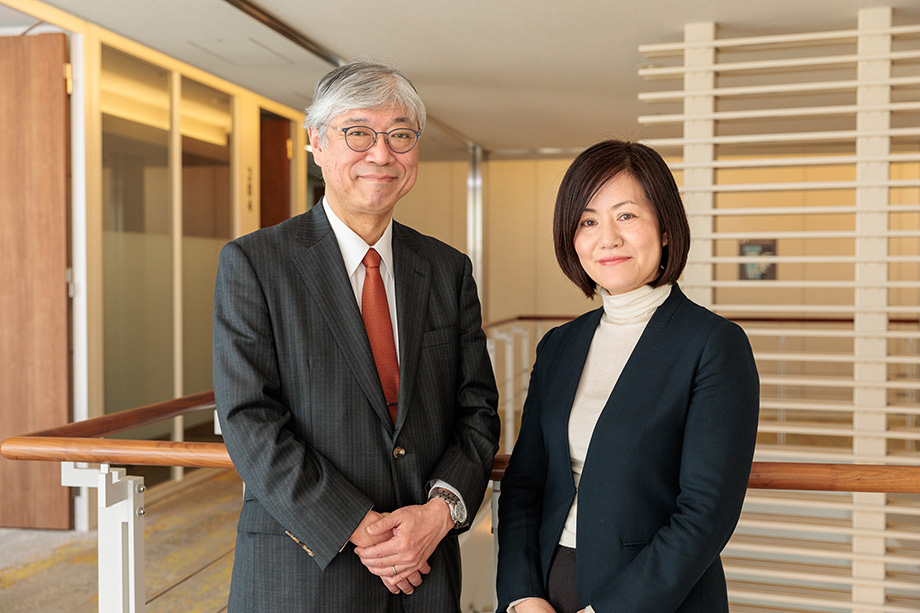
Nakanishi Hiroshi (left) is a Professor at Kyoto University’s Graduate School of Law, Legal and Political Studies. He chaired an expert panel on the revision of the Development Cooperation Charter. Sanada Akiko (right) is JICA’s Senior Director of the Strategic Planning Division, Operation Strategy Department.
SANADA: In addition to dealing with global issues like climate change, the international society is at a historic turning point—facing compound crises, including risks of international division. What is your view of the critical current situation?
NAKANISHI: The international situation is becoming unstable, considering the Ukraine conflict and the battles between Israel and Hamas. Instead of one large conflict dominating the world, there are various lines of divisiveness and areas of conflict, and these conflicts are growing more intense.
Putting the current situation into a longer-term perspective, the basic nature of international politics began to change around 2010. One major issue of the 21st century is that countries can no longer politically ignore the worldwide problems of global warming and bio-diversity. Another issue is the easy access to information. The amount of information exchanged through the internet has grown dramatically, significantly changing social processes, including politics and the nature of social communication.
While many people agree that there are common global problems, political units have become smaller and decentralized, which creates context for turmoil. Along with the emergence of China and Russia and their increasingly powerful authoritarian approach, we’ve seen increasingly severe political fissures in the West. Looking at the world overall, I believe we are seeing less and less entities that are willing to lead efforts to resolve the current state of uncertainty.
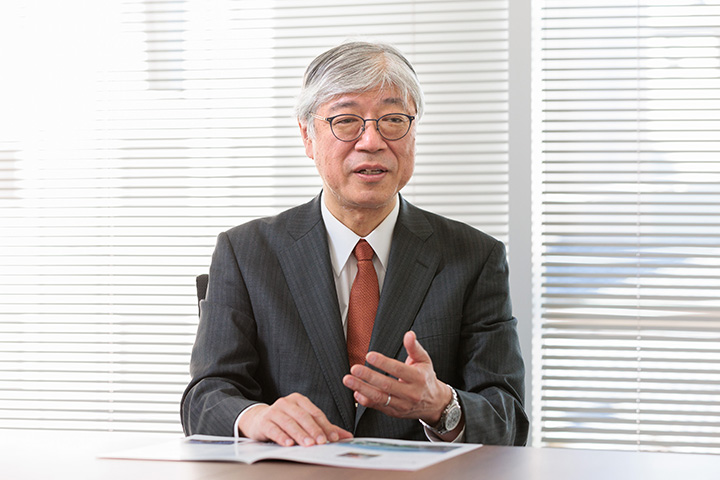
Nakanishi says that the state of current international society resembles the 1930s period before World War II, when small-scale regional conflicts were breaking out in different areas of the world. Looking at history on a longer scale, he points out that such unstable periods occur approximately once every one hundred years.
SANADA: Humanity now is facing problems on a global scale at a time when nations are divided and international society is in a state of turmoil. What role can development cooperation play under these circumstances, as the world seeks to overcome differences in values and interests, and cooperate and coordinate with one another?
NAKANISHI: The context surrounding development cooperation has changed significantly from when it began in the 1950s to today. At the time, it was created as a framework for advanced nations to provide various capital and technology to support the growth of developing nations’ economies. Since the 1980s, as globalization increased, the economic and technological standards of developing nations saw progress, and private-sector economic activities and technology transfers across borders have become more common.
Because of these changes, development cooperation today is focused on cooperating on shared problems that are of public interest on a global scale. As more and more problems cannot be handled by public agencies and governments alone, ODA plays a role in leading the direction of international cooperation. In terms of communications, another important theme of development cooperation is to promote digitalization in creating standards to prevent disinformation or abuse of AI.
Of course, the issues of poverty and social disadvantages still exist in this age of globalization, but they are not limited to developing nations or the poorest countries. These are social issues that all advanced nations need to grapple with, including Japan. Recognizing these as common, globally shared problems and working together to resolve them is also part of today’s development cooperation. In terms of traditional economic power or economic scale, the world has become more equal, developed countries are no longer just the providers and developing countries are no longer just the recipients.
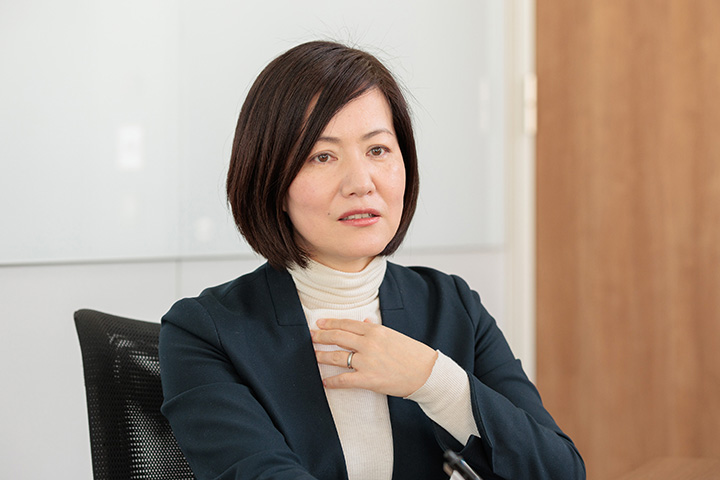
Senior Director Sanada says that as the scale of ODA for development is getting relatively smaller, there is a need to work with various partners and take the lead on themes of a global public nature
SANADA: In the process of revising the Development Cooperation Charter, we discussed how—as the world is becoming more horizontal—there should be a shift from top-down assistance to global cooperation on these problems. Please tell us the key points to these discussions.
NAKANISHI: There is a debate within Japan over development assistance and support, with some viewing it as an important diplomacy tool for Japan, while others think that Japan should prioritize domestic support over overseas aid, as it is no longer the economic superpower it once was, and cannot ignore the poverty and disasters at home. However, whether it is environmental issues or SDG issues like poverty, if the world’s problems grow more severe, Japan will also be impacted and face difficult situations. I would like the people of Japan to understand this isn’t an either/or situation.
The concept of “human security*” that Japan has emphasized internationally from the end of the twentieth century into the twenty-first century has been reaffirmed in the new Development Cooperation Charter as a “fundamental philosophy that underlies all of Japan’s development cooperation.” The world is now in an uncertain state, with division and conflict arising from differences in political systems and economic positions. Despite this, on a micro-level as individual humans, there are more opportunities to recognize shared problems through technological advances such as SNS. The broader concept of “human security” is based on human connections and seeks to create a better society through mutual aid and helping one another. This is the basic philosophy of Japan’s development cooperation and I believe it has renewed significance in today’s world.
As we are using the precious tax income of the Japanese people, we can’t ignore the viewpoint that our development cooperation should contribute to Japan’s national interest. I believe that from the long-term perspective of mutual benefits, realizing public good on a global scale is also in the national interest of Japan.
SANADA: There are areas of the concept of “human security” that even we who work on the ground in development cooperation struggle to grasp. However, because we Japanese are now facing new issues such as COVID-19, climate change, the light and shadow of digital technology, declining birth rates, and an aging population, we can understand that “human security” is something personal and meaningful.
JICA supports nation-building and human development in developing nations in various fields. Its efforts require time and persistence, but they are also uniquely Japanese. Recently in particular, I feel that is important to work with people in developing countries to provide support that leads to the development of a better society, so that society as a whole will recognize that the development of democratic societies leads to improvements in the environment and their own lives. I am working with the spirit that we can play a role in international cooperation efforts to prevent developing nations’ interests from being swept away by the logic and various interests of the superpowers.
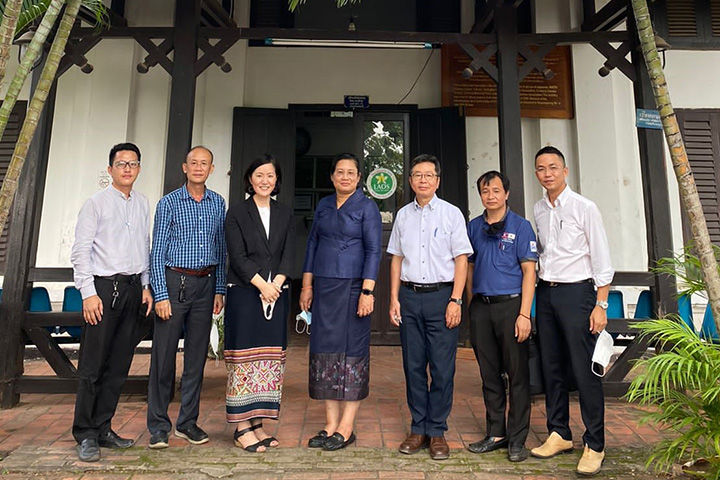
Senior Director Sanada (third from the left) with stakeholders of a project aimed at sustainable management of the UNESCO World Heritage city of Luang Prabang, during her assignment to Laos from 2019 to 2021. The COVID-19 pandemic led to a sharp decrease in tourists, making it a difficult period. “We worked together to brainstorm and implement strategies for protecting and developing the city for the future,” she says.
NAKANISHI: The common understanding of political scientists is that democratization has been waning across the globe over the past 15 to 20 years. There are many reasons for this, including that the current political framework has become too large and that politics has become too distant from the lives of the average person, leading to a trend of political fragmentation.
In the end, what matters for politics is how stable and fulfilling the local people’s living conditions are. Only after this foundation is firm on the local level can democracy gain vitality. Combining this with economic development and new innovations also helps strengthen democracy.
Of course, this is a very roundabout approach. Japan alone does not have the power to change the world. However, there can be no stability in global politics nor the possibility for a new order without a review of the current society. In that sense, what JICA is doing at local levels is very valuable. The original idea of democracy involves building relationships of trust on a local level, which stabilizes the larger political system. It is important to share this work across the globe, transcending cultural backgrounds. This is also an important role of development cooperation.
SANADA: The importance of co-creation and collective action was emphasized in the revised Development Cooperation Charter. What role do you think that JICA should play in this context in the future?
NAKANISHI: JICA, including its predecessor, has operated for around 50 years. It is a specialist organization unique in the world in the field of development cooperation, and the human resources and experience it has accumulated are an asset to Japan. It is important to consider how to re-invest the know-how and connections JICA has developed, and to utilize this in today’s context.
The name JICA is well known, but very few Japanese are able to explain what it does. JICA must become an organization that people are interested in and want to know more about. I think JICA should publicize examples and projects that show overseas people being proactively involved in Japanese society as a result of their connection with JICA.
SANADA: As stated in the Charter, we hope that the knowledge and human resources from JICA can be used to help solve Japan’s social problems, and contribute to economic growth by circulating the solutions and social values generated through co-creation with developing nations through dialogue and cooperation.
The people who participated as Japan Overseas Cooperation Volunteers (JOCV) are human resources who have experienced trial and error in different cultures overseas, where they were completely vulnerable. JICA has begun an initiative for these young people, after their return to Japan, to find new solutions for local community issues that go beyond conventional methods.
In addition, over 8,000 JICA participants from developing countries come to Japan every year. We will try to create opportunities for them to broaden their perspectives by connecting them with small and medium enterprises in local communities to discuss solutions for problems in developing nations. Conversely, we could have them work together to address problems facing local Japanese communities from a different perspective.
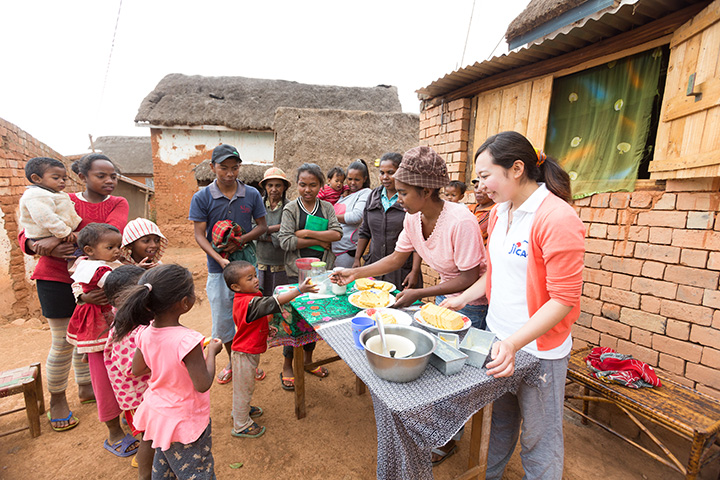
In Madagascar, a Japan Overseas Cooperation Volunteer (right) works on nutritional management of residents by creating a more nutritious menu using local ingredients. Volunteers are expected to continue useful work after their return to Japan.
NAKANISHI: I think there is a great need in Japan for not only young people, but people from all walks of life, to participate in innovation and problem solving in Japanese society, and interaction with overseas countries is a great stimulus. Finding how JICA’s various know-how and human connections can help in resolving issues in Japan is very important, and I hope to see more of this. JICA’s actions build trust between people, and that is extremely valuable to Japanese society. There are many places where it can be effective, including international politics and extreme situations in development cooperation.
SANADA: JICA’s stated vision is “Leading the world with trust.” I was positioned in Laos during the COVID-19 pandemic, where I heard from people in the government that they wanted to work together with JICA to overcome the difficult situation. This happened because of the trust JICA had built up over the years. We will continue to promote our work in development cooperation while reaffirming the value of this trust and our connections.

Nakanishi tells Senior Director Sanada that JICA activities lead to the building trust between people.
Nakanishi Hiroshi
International political scientist, Professor at the Graduate School of Law, Legal and Political Studies, Kyoto University
He participated as a member of the expert panel when enacting the 2015 Development Cooperation Charter. He also chaired the expert panel related to this revision of the Development Cooperation Charter. His areas of expertise include security, Japanese diplomacy, and international order.
Sanada Akiko
Senior Director, Strategic Planning Division, Operation Strategy Department, JICA
Joined former Japan International Cooperation Agency (JICA) in 2002. Mainly served in the administrative of development cooperation for urban development and urban environments. Assumed current role following assignment to offices in Bangladesh and Laos.
scroll